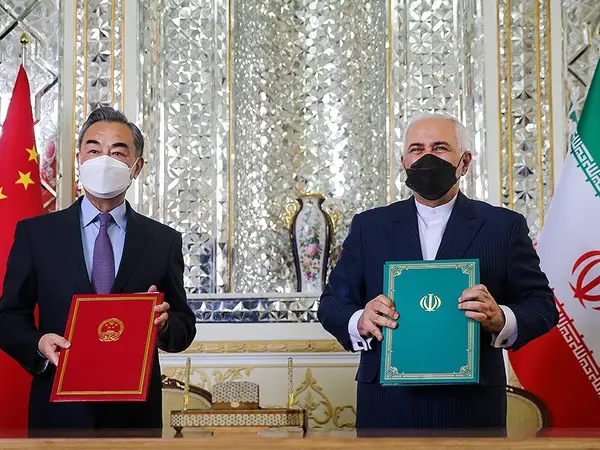A former Iranian ambassador to China says the Tehran-Beijing 25-year agreement is overestimated and only worked as a bargaining chip for China to secure deals with Saudi Arabia.
Mohammad-Hossein Malaek, who served as Tehran’s envoy for four years under former president Mohammad Khatami, told the Iranian Labour News Agency on Tuesday that the 25-year strategic agreement is a document without any value, especially following the visit by Chinese President Xi Jinping to Saudi Arabia in December.
He noted that the visit has opened a new chapter in Iran-China relations, therefore the agreement should be revised as Tehran and Beijing had different agendas at the time the document was signed.
Malaek claimed that the agreement -- which is wrapped in mystery and so far has had little practical results – made China more interesting for Arab countries and incentivized them to give Beijing many economic and political benefits, as it was seen during the Chinese president’s recent visit to the region. W
When the document was signed, then-foreign-minister Mohammad Javad Zarif was accused of being reluctant to cooperate with China, so with signing an agreement, which does not include any practical measures and is not a binding contract, Zarif managed to exonerate himself from those accusations. “Therefore, this document is no longer the document for which they wrote stories [in Iranian media]," he said, noting that at the beginning, they made a lot of noise about the deal, but no progress has been made and “we are still at the same point.”
Zarif and his Chinese counterpart Wang Yi on March 27, 2021, signed the controversial 25-year deal at a ceremony at the Iranian Foreign Ministry in Tehran. The deal was first proposed by Iran's Supreme Leader Ali Khamenei during President Xi’s visit to Tehran in 2016.
The pact has been very controversial in Iran because its details have never been disclosed. A leaked copy of the final text only outlines the general terms of the agreement, but Tehran officials, beleaguered by economic crisis they cannot solve, hoped it will bring billions in investment and make Iran part of China' Belt and Road Initiative, a multi-trillion-dollar infrastructure scheme intended to stretch from East Asia to Europe. The project aims to significantly expand China's economic and political influence and has raised concerns in the United States and elsewhere.
Malaek added that the Islamic Republic needs foreign investors in the field of oil and gas, and it has nothing to do with signing the document or not. Sanctions have stopped Iran's cooperation with Western companies, and only Russian and Chinese companies may invest in the country. However, he said that China abides by the sanctions and does not violate any of them at all when it feels any threat to its own interests.
Iran has indicated its intention to rely more on Asian countries, particularly China for trade relations as talks with the United States and Europe to resolve differences over Tehran’s nuclear program have not succeeded so far and US sanctions remain in place. However, Beijing has so far has not seriously challenged US sanctions, as it has cultivated closer ties with the Persian Gulf Arab countries and Israel.
Many Iranians have expressed resentment over the 25-year cooperation agreement with China and a proposed 20-year deal with Russia, saying it is a sell-out. Although Iran has not revealed the details of the agreement with China and what it will entail in political, economic and military terms, some social media users go as far as claiming that the Islamic Republic is "selling out the country and its people" to China and Russia.
